The history of Cuba is characterized by dependence on outside powers—Spain, the US, and the USSR. The island of Cuba was inhabited by various Amerindian cultures prior to the arrival of the Genoese explorer Christopher Columbus in 1492. After his arrival on a Spanish expedition, Spain conquered Cuba and appointed Spanish governors to rule in Havana. The administrators in Cuba were subject to the Viceroy of New Spain and the local authorities in Hispaniola. In 1762–63, Havana was briefly occupied by Britain, before being returned to Spain in exchange for Florida. A series of rebellions between 1868 and 1898, led by General Máximo Gómez, failed to end Spanish rule and claimed the lives of 49,000 Cuban guerrillas and 126,000 Spanish soldiers. However, the Spanish–American War resulted in a Spanish withdrawal from the island in 1898, and following three-and-a-half years of subsequent US military rule, Cuba gained formal independence in 1902.

The Cuban Missile Crisis, also known as the October Crisis in Cuba, the Caribbean Crisis in Russia, or the Missile Scare, was a 13-day confrontation between the United States and the Soviet Union, which escalated into an international crisis when American deployments of missiles in Italy and Turkey were matched by Soviet deployments of similar ballistic missiles in Cuba. Despite the short time frame, the Cuban Missile Crisis remains a defining moment in American national security and nuclear war preparation. The confrontation is often considered the closest the Cold War came to escalating into a full-scale conflict, nuclear war.
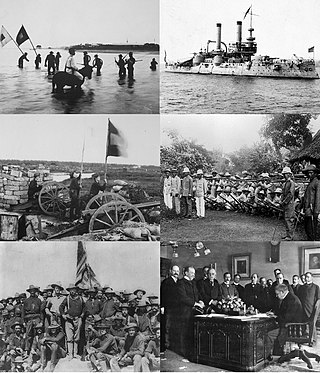
The Spanish–American War began in the aftermath of the internal explosion of USS Maine in Havana Harbor in Cuba, leading to United States intervention in the Cuban War of Independence. The war led to the United States emerging predominant in the Caribbean region, and resulted in U.S. acquisition of Spain's Pacific possessions. It led to United States involvement in the Philippine Revolution and later to the Philippine–American War.
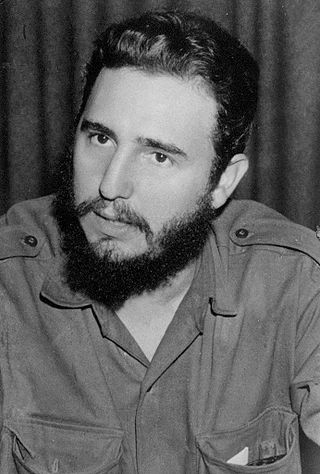
Fidel Alejandro Castro Ruz was a Cuban revolutionary and politician who was the leader of Cuba from 1959 to 2008, serving as the prime minister of Cuba from 1959 to 1976 and president from 1976 to 2008. Ideologically a Marxist–Leninist and Cuban nationalist, he also served as the first secretary of the Communist Party of Cuba from 1961 until 2011. Under his administration, Cuba became a one-party communist state; industry and business were nationalized, and socialist reforms were implemented throughout society.

Havana is the capital and largest city of Cuba. The heart of the La Habana Province, Havana is the country's main port and commercial center. The city has a population of 2.3 million inhabitants, and it spans a total of 728.26 km2 (281.18 sq mi) – making it the largest city by area, the most populous city, and the fourth largest metropolitan area in the Caribbean region.

Fulgencio Batista y Zaldívar was a Cuban military officer and politician who served as the elected president of Cuba from 1940 to 1944 and as its U.S.-backed military dictator from 1952 to 1959, until he was overthrown in the Cuban Revolution.
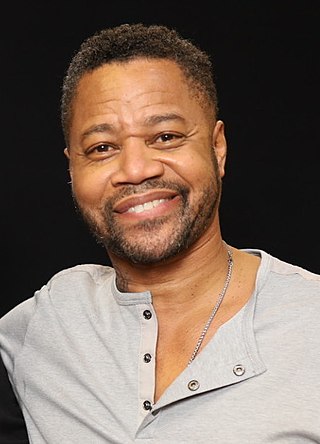
Cuba Mark Gooding Jr. is an American actor. He is the recipient of an Academy Award, a Screen Actors Guild Award, and an Emmy nomination.
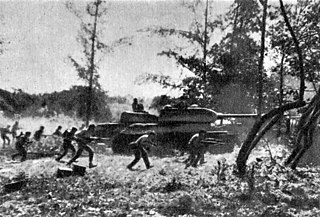
The Bay of Pigs Invasion was a failed military landing operation on the southwestern coast of Cuba in 1961 by Cuban Democratic Revolutionary Front (DRF), consisting of Cuban exiles who opposed Fidel Castro's Cuban Revolution, covertly financed and directed by the U.S. government. The operation took place at the height of the Cold War, and its failure influenced relations between Cuba, the United States, and the Soviet Union.

José Julián Martí Pérez was a Cuban nationalist, poet, philosopher, essayist, journalist, translator, professor, and publisher, who is considered a Cuban national hero because of his role in the liberation of his country from Spain. He was also an important figure in Latin American literature. He was very politically active and is considered an important philosopher and political theorist. Through his writings and political activity, he became a symbol of Cuba's bid for independence from the Spanish Empire in the 19th century, and is referred to as the "Apostle of Cuban Independence". From adolescence on, he dedicated his life to the promotion of liberty, political independence for Cuba, and intellectual independence for all Spanish Americans; his death was used as a cry for Cuban independence from Spain by both the Cuban revolutionaries and those Cubans previously reluctant to start a revolt.
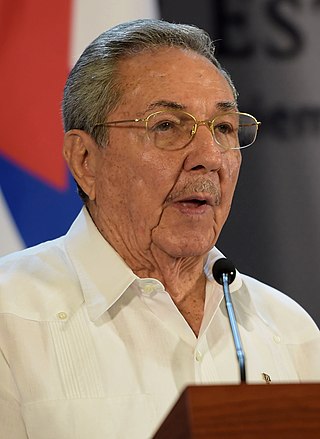
Raúl Modesto Castro Ruz is a retired Cuban politician and general who served as the first secretary of the Communist Party of Cuba, the most senior position in the one-party communist state, from 2011 to 2021, and President of Cuba between 2008 and 2018, succeeding his brother Fidel Castro.

The Cuban Revolution was a military and political effort to overthrow the government of Cuba between 1953 and 1959. It began after the 1952 Cuban coup d'état which placed Fulgencio Batista as head of state and the failed mass strike in opposition that followed. After failing to contest Batista in court, Fidel Castro organized an armed attack on the Cuban military's Moncada Barracks on July 26th, 1953. The rebels were arrested and while in prison formed the 26th of July Movement. After gaining amnesty the M-26-7 rebels organized an expedition from Mexico on the Granma yacht to invade Cuba. In the following years the M-26-7 rebel army would slowly defeat the Cuban army in the countryside, while its urban wing would engage in sabotage and rebel army recruitment. Over time the originally critical and ambivalent Popular Socialist Party would come to support the 26th of July Movement in late 1958. By the time the rebels were to oust Batista the revolution was being driven by the Popular Socialist Party, 26th of July Movement, and the Directorio Revolucionario Estudiantil.

Mark Cuban is an American businessman, film producer, investor, philanthropist, television personality, and writer. According to Forbes, Cuban's net worth is an estimated US$5.1 billion, and he was ranked #177 on the Forbes 400 list in 2020. He is the owner of the Dallas Mavericks and the co-owner of 2929 Entertainment. He is also one of the main "sharks" on the ABC reality television series Shark Tank.

Antonio Sánchez de Bustamante y Sirven was a Cuban lawyer, educator, politician and international jurist. He promoted the existence of a common American regulation for private international law. For this reason, the sixth Pan-American Congress took place in Cuba in 1928, in the final document, the Treaty of Havana is attached in the annex of the Code of Private International Law.

Julio Antonio Mella McPartland was a Cuban political activist, journalist, communist revolutionary, and one of the founders of the original Communist Party of Cuba. Mella studied law at the University of Havana but was expelled in 1925. He had worked against the government of Gerardo Machado, which had grown increasingly repressive. Mella left the country, reaching Central America. He traveled north to Mexico City, where he worked with other exiled dissidents and communist sympathizers against the Machado government. He was assassinated in 1929, but historians still disagree on which parties were responsible for his death. The 21st century Cuban government regards Mella as a communist hero and martyr.
Armando Valladares Perez is a Cuban-American poet, diplomat and former political prisoner for his involvement in the Cuban dissident movement.
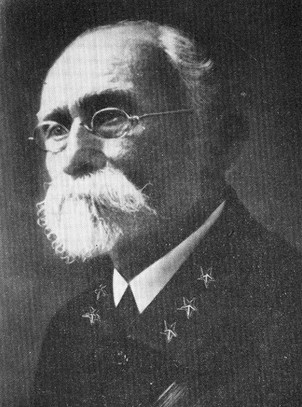
Máximo Gómez y Báez was a Dominican Generalissimo in Cuba's War of Independence (1895–1898). He was known for his controversial scorched-earth policy, which entailed dynamiting passenger trains and torching the Spanish loyalists' property and sugar plantations—including many owned by Americans. He greatly increased the efficacy of the attacks by torturing and killing not only Spanish soldiers, but also Spanish sympathizers and especially Cubans loyal to Spain. By the time the Spanish–American War broke out in April 1898, the rebellion was virtually defeated in most of Western Cuba, with only a few operating pockets in the center and the east. He refused to join forces with the Spanish in fighting off the United States, and he retired to the Quinta de los Molinos, a luxury villa outside of Havana after the war's end formerly used by captains generals as summer residence.
Corps General Abelardo Colomé Ibarra was a Vice President of the Council of State of Cuba and the Cuban Minister of the Interior, serving in the latter position from 1989, until his retirement in October, 2015. Known as Furry he first laid the foundations of State Security in 1959.

Cuba, officially the Republic of Cuba, is an island country comprising the island of Cuba, as well as Isla de la Juventud and several minor archipelagos. Cuba is located where the northern Caribbean Sea, Gulf of Mexico, and Atlantic Ocean meet. Cuba is located east of the Yucatán Peninsula (Mexico), south of both the American state of Florida and the Bahamas, west of Hispaniola, and north of both Jamaica and the Cayman Islands. Havana is the largest city and capital; other major cities include Santiago de Cuba and Camagüey. The official area of the Republic of Cuba is 109,884 km2 (42,426 sq mi) but a total of 350,730 km2 (135,420 sq mi) including the exclusive economic zone. Cuba is the second-most populous country in the Caribbean after Haiti, with over 11 million inhabitants.

Ernesto "Che" Guevara was an Argentine Marxist revolutionary, physician, author, guerrilla leader, diplomat, and military theorist. A major figure of the Cuban Revolution, his stylized visage has become a ubiquitous countercultural symbol of rebellion and global insignia in popular culture.

Miguel Mario Díaz-Canel y Bermúdez is a politician and engineer who is the 3rd and current first secretary of the Communist Party of Cuba. As first secretary, he is the most powerful person in the Cuban government. Díaz-Canel succeeds the brothers Fidel and Raúl Castro, making him the first non-Castro leader of Cuba since the revolution. Díaz-Canel's leadership thus represents a non-dynastic form of succession for the party as well as for the state, and the end of Castro leadership in Cuba.
















